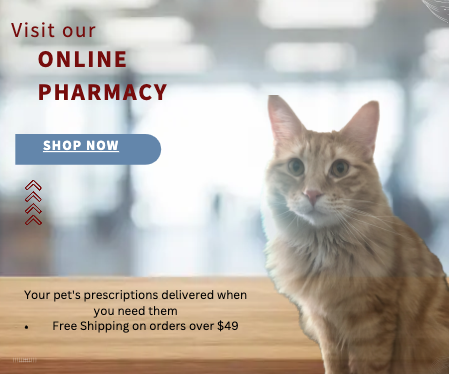
Choosing the right care for your dog includes making decisions about vaccinations. One fact to consider is that kennel cough can lead to serious issues in certain dogs. Our article offers insights into the benefits and risks of the kennel cough vaccine, guiding you through making an informed choice.
Understanding Kennel Cough
Kennel cough, also known as canine infectious tracheobronchitis, involves an inflamed throat and leads to a persistent hacking cough and respiratory infections in affected dogs. This condition can be unsettling, but it’s typically not lethal.
However, for puppies and older or immunocompromised dogs, this illness poses significant threats, including fatal bronchopneumonia and chronic bronchitis.
Despite its challenging aspects, prevention plays a crucial role in managing kennel cough outbreaks. Vaccines targeting Bordetella along with parainfluenza, adenovirus, and distemper are available to bolster defense against this disease.
While no vaccine offers absolute immunity due to the possibility of breakthrough infections, they significantly reduce the risk of developing severe symptoms associated with kennel cough.
The bordetella vaccine specifically prompts an immune response that fights off the pathogens responsible for triggering symptoms akin to those observed in human colds but suited for canine systems.
Signs and Symptoms of Kennel Cough
- Persistent, forceful coughs that can sound like honking
- Sneezing
- Runny nose
- Eye discharge
- Lethargy
- Fever
- Loss of appetite
Causes
Kennel cough can stem from exposure to various pathogens, including Bordetella bronchiseptica, canine parainfluenza virus, adenovirus, and distemper. These agents attack the respiratory system of dogs, leading to the condition known as kennel cough or canine infectious tracheobronchitis.
Dogs with a compromised immune system face a higher risk of developing severe complications from kennel cough, such as fatal bronchopneumonia in puppies and chronic bronchitis in older dogs.
Highly social dogs or those frequently visiting dog parks, boarding facilities, doggy daycares, and grooming salons are especially vulnerable to catching this highly contagious disease.
A Deep Dive into the Bordetella Vaccine
Vaccinating your pet against kennel cough is crucial, especially for highly social dogs that interact with other pets. The Bordetella vaccine, one of the main causes of kennel cough, Bordetella bronchiseptica, plays a vital role in disease preventative care.
This proactive step can significantly reduce the risk of your pet contracting this contagious respiratory disease. Kennel cough may not be fatal on its own but can lead to severe complications like fatal bronchopneumonia in puppies and chronic bronchitis in older or immunocompromised dogs.
Candidates for the Vaccine
- Dogs with high social exposure, including those frequenting dog parks, boarding facilities, and pet daycares, benefit significantly from the kennel cough vaccine. This prevention is crucial since these environments facilitate the rapid spread of respiratory diseases among canines.
- Puppies and older dogs or those with compromised immune systems should receive vaccination, as they are at a higher risk for severe complications from kennel cough.
- Given the Bordetella vaccine’s effectiveness in triggering an immune response against canine infectious tracheobronchitis, dogs that have not yet been vaccinated pose a greater risk of contracting this upper respiratory tract disease.
Mechanism of Prevention Against Kennel Cough
The Bordetella vaccine prepares a dog’s immune system to fight off the kennel cough bacteria, Bordetella bronchiseptica. By introducing a small amount of this bacterium into the body, the vaccine stimulates the dog’s immune system to produce antibodies.
These antibodies then stand ready to defend against real infections from kennel cough. This process highlights how vaccines are critical in disease prevention for pets, particularly for those susceptible to respiratory diseases like kennel cough.
Given that vaccines protect dogs from four major causes of kennel cough – Bordetella, parainfluenza, adenovirus, and distemper – vaccination becomes an essential part of keeping social or highly exposed dogs healthy.
Despite concerns about over-vaccination possibly leading to autoimmune diseases in dogs, the protection offered by these vaccines outweighs potential risks for many pets. The next section discusses optimum scheduling and costs associated with vaccinating your pet against kennel cough.
Vaccination Schedule and Costs
Dogs should receive their first Bordetella vaccine at about 6 to 8 weeks of age, followed by annual boosters to maintain effective prevention against kennel cough. Highly social dogs may need more frequent vaccinations, as recommended by a veterinarian.
Costs for the kennel cough vaccination can vary widely depending on geographic location, veterinary clinics, and whether additional canine cough vaccines are administered simultaneously.
For the Bordetella vaccine alone, pet parents might expect to pay between $20 and $50 per dose. If your dog requires additional protection from parainfluenza, adenovirus, and distemper as part of the comprehensive disease prevention plan for kennel cough causes, costs could increase significantly.
Common Side Effects to Expect
- Dogs vaccinated with the Bordetella vaccine may show mild symptoms such as sneezing, a runny nose, or a slight cough. These reactions typically occur shortly after vaccination as the immune system responds to the vaccine.
- In some cases, dogs experience fatigue or a low-grade fever post-vaccination. This is their body’s natural response to developing immunity against kennel cough.
- A small percentage of dogs might display soreness at the injection site. Movement might be less energetic as they adjust during this brief period.
- It’s significant to monitor for signs of an allergic reaction, including swelling around the face, hives, and difficulty breathing. Though rare, these require immediate veterinary attention.
Protect Your Pet Against Kennel Cough Today!
Kennel cough vaccines offer benefits but come with risks. Dogs that socialize often need protection against this respiratory disease. Recognizing side effects early leads to better health outcomes for pets.
Discuss vaccination plans with a vet ensures customized care for your dog’s needs. Researching and staying informed about canine vaccinations can empower pet owners in their decisions.
Request an appointment with Creedmoor Road Animal Hospital to discuss the best approach for your pet’s health and safety.


